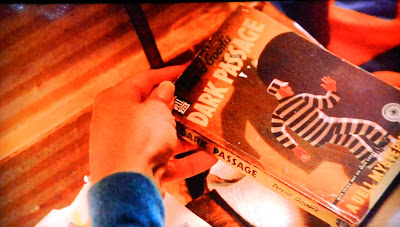This
is review is for a book different from the usual fare at Gravetapping,
but it is a marvelous and important novel that satisfies on every level of good
literature. It entertains, it educates, it illuminates.
Colson
Whitehead’s The Nickel Boys is as brilliant as it is uncomfortable.
Elwood Curtis, a black teenager living in 1960s Tallahassee, is sent to a
segregated reform school, The Nickel Academy, after the police catch him in a
stolen car. Elwood was hitchhiking for the first day of his early-entry college
class in the next town, when the car thief picked him up. His pleas of
innocence go nowhere with the police or the judge.
Nickel’s
staff trade the boys’ state allotted food to local businesses for kickbacks.
They beat and whip any of the “students” perceived as trouble-makers. A few of
the boys disappear into unmarked graves after severe beatings, the staff
claiming they ran away. The boys are offered to local bigwigs as free labor.
The pedophiles on staff have unlimited access to the boys.
The
school’s degrading atmosphere is more than Elwood can stand. He wants to fight,
in a similar way that his hero Martin Luther King Jr. confronts segregation and
racism, but the more he struggles against Nickel, the harder his life becomes.
The Jim Crow South setting is vividly drawn, uncomfortable, and for this naïve
reader, startling. Elwood's journey from a hopeful boy, listening to King’s
sermons in his grandmother’s house, to his descent into Nickel is both tragic
and disturbing.
The
Nickel Boys is fiction, but it was inspired by the very real Dozier School
for Boys, which operated in Marianna, Florida, between 1900 and 2011. The
beatings, killings, and everything else actually happened at Dozier, but the
story and the characters are the invention of Whitehead.




